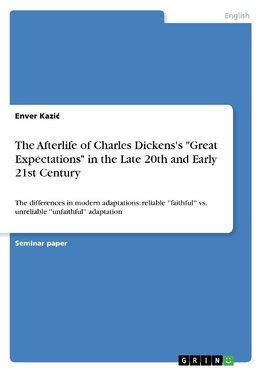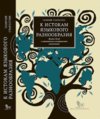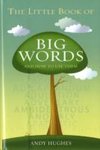
-
 Anglický jazyk
Anglický jazyk
The Afterlife of Charles Dickens's "Great Expectations" in the Late 20th and Early 21st Century
Autor: Enver Kazi¿
Seminar paper from the year 2014 in the subject English Language and Literature Studies - Literature, grade: A, University of Sarajevo, course: English Language and Literature, language: English, abstract: It seems that the 19th-century industrial development... Viac o knihe
Na objednávku
16.65 €
bežná cena: 18.50 €
O knihe
Seminar paper from the year 2014 in the subject English Language and Literature Studies - Literature, grade: A, University of Sarajevo, course: English Language and Literature, language: English, abstract: It seems that the 19th-century industrial development and generally the period called Victorian age was not suitable for the urban writer such as Dickens. It should not come as a surprise that Dickens was not very satisfied with the period he lived in, or with people around him. The fact that he had already sold the lease on his London house and moved to the swamp - North Kent Marshes, before he started to write the novel "Great Expectations" may come as a proof for this statement.
Dickens was forty-eight then, and he could not stand pollution and bad public health, or the famous London fog of which he wrote so much in his novels "Bleak House" and "Our Mutual Friend". There is however always a huge diversion between rural and urban in Dickens' novels, especially in "Great Expectations". Because of this huge distinction Tristan Sipley in her work 'The Revenge of 'Swamp Thing': Wetlands, Industrial Capitalism, and the Ecological Contradiction of Great Expectations' divides Dickens in the two groups - "pastoral Dickens" and "gritty urban Dickens". In "Great Expectations" marsh, the place where the main protagonist - Pip lives (the marsh) is without a doubt showed as a place of wrongdoings, criminality and everything bad.
- Vydavateľstvo: GRIN Verlag
- Rok vydania: 2016
- Formát: Paperback
- Rozmer: 210 x 148 mm
- Jazyk: Anglický jazyk
- ISBN: 9783668208803




 Nemecký jazyk
Nemecký jazyk 
 Ruský jazyk
Ruský jazyk 




